I have been hearing nothing but praise for the former editor in chief of io9, Charlie Jane Anders, and her novel All the Birds in the Sky. While I’ve previously been burned by hype, this little gem lived up to its reputation. I feel like this novel is what Joss Whedon and the Buffy writers were aiming for in Season 4 – but this is so much better (yes, I love Buffy too, and while there might be some great episodes in that season – like ‘Pangs’ – it is not the strongest of the season arcs).
Ultimately, All the Birds in the Sky is about power – who has it, who should have it, and what can be done with it. Good intentions don’t always mean the right actions will be taken. Should anyone, no matter how ‘good’, educated, level-headed… ever have the power/ability to destroy our world? And what makes our world special and worth saving? Is it the people that populate it? What about the animals?
‘So if Patricia could speak bird, and understand bird, and identify with a bird she’d just met, why couldn’t she be a bird?’
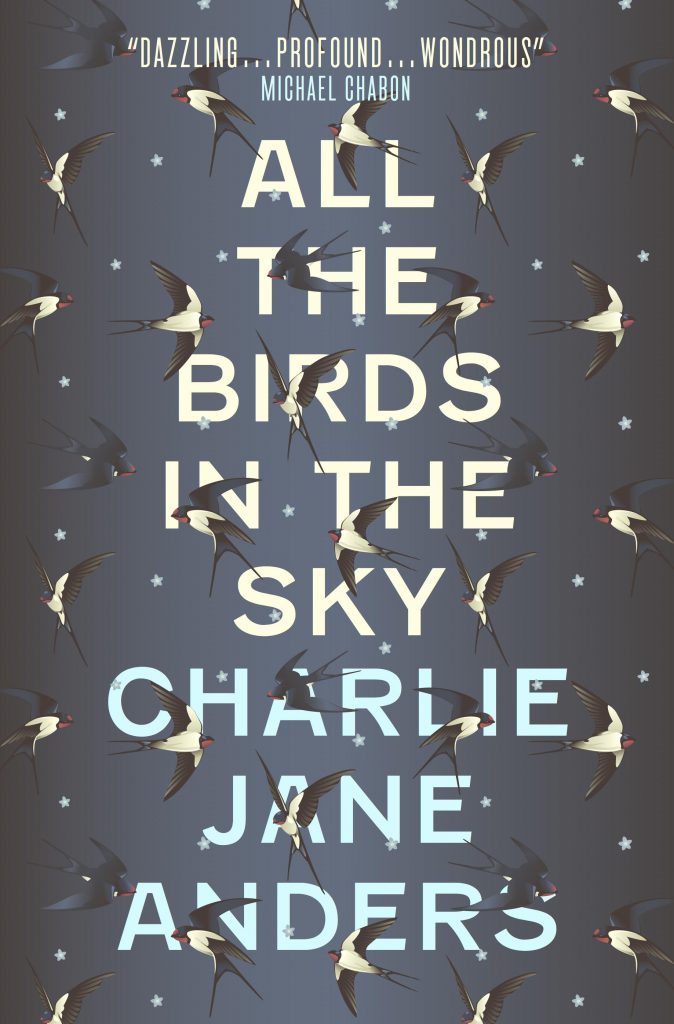 Two awkward outcasts, Patricia and Laurence, befriend one another at school before escaping the lives they feel inhibit their potential. Patricia attends a school of magic where she learns to harness her extraordinary powers, joining a group of witches dedicated to keeping the natural balance and order of the world in check. Laurence continues his love of engineering and technological advancement and in his own way, believes he is working towards saving humanity. But what neither of them realise is that their fates are intertwined and both will play an important role in the impending apocalypse.
Two awkward outcasts, Patricia and Laurence, befriend one another at school before escaping the lives they feel inhibit their potential. Patricia attends a school of magic where she learns to harness her extraordinary powers, joining a group of witches dedicated to keeping the natural balance and order of the world in check. Laurence continues his love of engineering and technological advancement and in his own way, believes he is working towards saving humanity. But what neither of them realise is that their fates are intertwined and both will play an important role in the impending apocalypse.
‘What, you didn’t think they were all sane, did you? Not a one of them. They’re all crazier than you and me put together. They just know how to fake it. You could too, but you’ve chosen to torture all of us instead. That’s the definition of evil right there: not faking it like everybody else.’
‘Trust hipsters to make even the collapse of civilization unbearably twee.’
This is not a magic school story. Nor is it the tale of some brilliant science that saves the world in an improbable manner. It isn’t science fiction or fantasy. It’s all of these things and nothing. All the Birds in the Sky works so well because it focuses on the stories of two very different people. Patricia and Laurence might be very different and experience very different lives, but the way that their stories are brought together in a way that feels inevitable… now that is pure magic.
Combining both these genres might have proven twee or overly complex, but the fantastical and technological become backdrops to the bigger questions about life and love, power and purpose. And having multiple perspectives and bases from which to develop the characters’ morals and value systems allows Anders to avoid being too prescriptive. Yes, she is tackling some big issues and life questions, but the reader never feels like she is saying ‘THIS IS THE ANSWER AND YOU MUST AGREE WITH ME’. Neither is she avoiding answers in an irritating way. The novel gives us possibilities, potential answers, choices. It shows the reader that everything in life depends on your perspective – and no one will ever have such a wide perspective as to allow them to make sweeping decisions to affect all of humanity, the world, the universe…
‘In person, Garrett looked like a once-hot ski instructor gone to seed.’
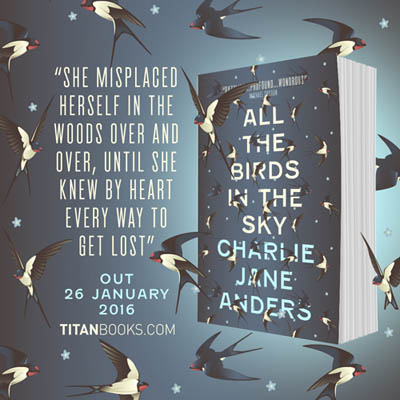 All the Birds in the Sky is written by a very skilled and confident writer. This is not the novel of a writer who is just starting out, Anders knows what she is doing. The characters are nuanced, the setting well-realised without being overly drawn out in exposition, and the language! This book is enormously quotable (if only I had a good enough memory for such things). These little snippets of brilliance left me with a stupid grin on my face for hours after, remembering why I love the written word so much and what it can achieve. Even simple things like the description of how Patricia’s parents met and fell in love: ‘She’d met Roderick after he started coming to all her [gymnastics] meets, and they’d invented a totally objective gymnastics measuring system that nobody had ever adopted.’ The language is playful, inventive, and a joy to read.
All the Birds in the Sky is written by a very skilled and confident writer. This is not the novel of a writer who is just starting out, Anders knows what she is doing. The characters are nuanced, the setting well-realised without being overly drawn out in exposition, and the language! This book is enormously quotable (if only I had a good enough memory for such things). These little snippets of brilliance left me with a stupid grin on my face for hours after, remembering why I love the written word so much and what it can achieve. Even simple things like the description of how Patricia’s parents met and fell in love: ‘She’d met Roderick after he started coming to all her [gymnastics] meets, and they’d invented a totally objective gymnastics measuring system that nobody had ever adopted.’ The language is playful, inventive, and a joy to read.
I only have one gripe, and it really is very specific to me and my preferences: Anders often uses the words ‘got’ and ‘gotten’. I accept that we use these words in everyday language and I wouldn’t mind so much if they just popped up in lines of dialogue. But in descriptive paragraphs, there are so many other, better ways of saying something. This is worse than an inexact adverb… it is inexact, unoriginal, and irritating. And it tarnished an otherwise perfect novel.
‘… the lack of delineation between “x-we” and “in-we” was a conspiracy of obfuscation, designed to create awkwardness and exacerbate peer pressure…’
Verdict: Highly recommended cross between fantasy and science fiction. An original story with wonderful characters, amusing anecdotes, and thoroughly readable prose.
 Pop Verse Pop Culture Universe
Pop Verse Pop Culture Universe
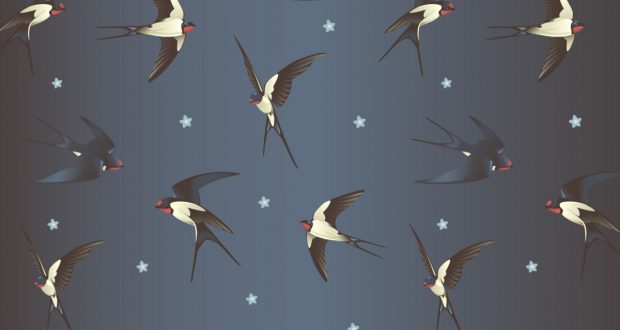


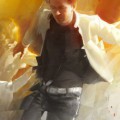
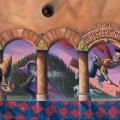
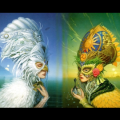

Glad you liked this. I did too. Tore through it in about 2 days. The plot almost gets away from her in the second half of the book but she claws it back and makes a great conclusion.